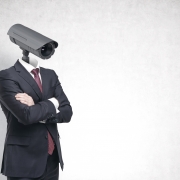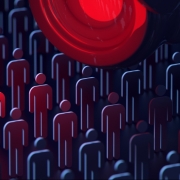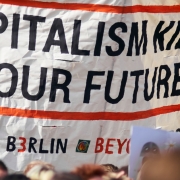Many of the problems we wrestle with in modern life would be solved if we lived in a private property society. Immigration is one. If all property were private, individuals would choose whom to invite on to their land or whom to employ in their entrepreneurial companies. Equally, they would choose whom to exclude, since the law of association includes the right not to associate. In the article below from WSJ Online, Andy Kessler makes the same argument about our personal data on Facebook. He includes not only the content we post, but the behavioral data we create through our clicks and Likes. He envisages the appropriate economic incentives to voluntarily maintain privacy or to share, and to receive advertising or not. And hopefully, the private property mentality will exclude or massively reduce regulation and government intervention.
_____________________________________________________________________________
Facebook has been on fire lately—but not in the way it usually is. Its stock is melting and congressional grandstanding (i.e., hearings) about privacy and security begins Tuesday. Facebook is a threat to democracy and society, critics now argue. I’ve lost track of how many professors are demanding the feds regulate or even break up the social-media giant. Don’t they teach classes anymore?
Apple CEO Tim Cook joined the pile-on last month: “I think that this certain situation is so dire and has become so large that probably some well-crafted regulation is necessary.” Be careful what you wish for. Sure, no one wants Russian bots controlling their minds, but targeting consumers’ minds based on detailed demographic information isn’t new. Bud Light has perfected it. Dilly dilly.
Techies have an expression for Facebook’s model. It’s “free as in beer”—in the sense of costing no money. You pay in other ways. I propose a simple fix. Let’s flip the whole thing—make it about property rights, 21st-century style. America was built on property rights. Congress can deliberate for 90 seconds and then pass the Make the Internet Great Again Act. The bill would contain five words: “Users own their private data.” Finis.
Contrast this with the European Union, which adopted its General Data Protection Regulation in 2016. It is more than 250 pages of confusing rules, exceptions and fines. But it doesn’t change the flawed model of today. It only adds regulations that make the situation even more confusing.
A Better Way to Make Facebook Pay.
What would the world look like under the Make the Internet Great Again Act? If you upload to Facebook photos from your last beach vacation—though please don’t—you still own them. But if I go to your page, zoom in to see whom you’re drinking with, click on a nearby ad, message you about it, or even “Like” it, that information about me should remain private too. I should still own it. Same for whatever I search on Google or buy on Amazon. I control it.
Facebook would store this info in a virtual locker, and users would control access. The social network already has this data. It simply needs to corral it into two billion virtual lockers. It’d take an overnight hackathon to implement, really. Each user could then share or not.
But if you don’t share, Facebook can’t do its magic and provide a robust News Feed. It will be all cat videos, all the time. Similarly, Google can’t provide pertinent search results, which, like prizes on “The Newlywed Game,” are selected especially for you.
You’re going to want to share. Here’s the good news: Facebook is going to pay you to share. Then they’ll turn around and charge you a similar amount to cover the cost of servers, electricity, coders and Mark Zuckerberg’s hoodies. This way they can still show Wall Street the profits it expects. Worth it? Your call.
Now users’ wants and desires are no longer free for the taking, even though nothing, except who owns the data, has changed. At last, consumers get an economic proposition to decide how to use services like Facebook. Put a price on it. Facebook can still anonymously aggregate collective likes and interests so advertisers can reach people with similar tastes. That’s what TV networks do. But every time someone opens your locker to determine your individual wants, money changes hands and you get some of it.
This is where it gets fun. Facebook would provide a sliding scale for sharing. The more information you deem shareable, the more you earn. In effect, it becomes a revenue-sharing arrangement with advertisers that want to reach you. If you don’t mind the barrage of ads, share away and a virtual wallet inside your virtual locker grows and grows, probably to be spent on new Facebook services like games, music or videos. Real competition in a real marketplace, rather than the charade of today.
Your locker would also contain a trust component, to combat fake news and to pay trusted content creators, like, say, The Wall Street Journal. To flag fake news and clickbait Facebook recently added an information button to links and will soon verify political ads, with insight about the source. Next, they need a trust factor or score determined by an algorithm with human input. As Facebook runs out of new global users, they can squeeze out more revenue per user. A business model with an upside. This virtual locker holding your data can be easily implemented at Google and Amazon. Where it’s especially needed is with consumer-facing apps like Uber and Airbnb. As more voice-activated Amazon Alexa-like devices enter more homes—Facebook for good reasons recently delayed introducing theirs—it’s critical that the industry, or Congress, set rules on who owns the data from everyday conversations. It should be simple: I own it, you can rent it.
Image https://thoughtcatalog.com












